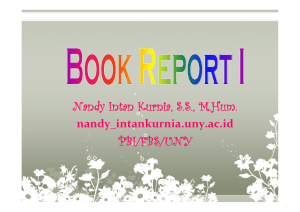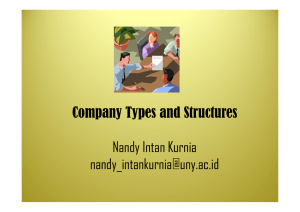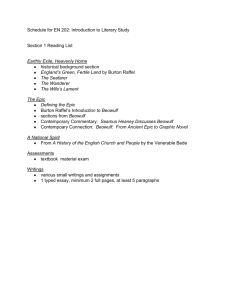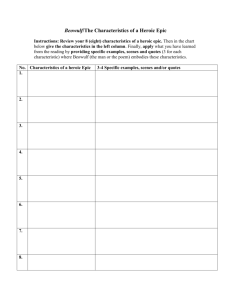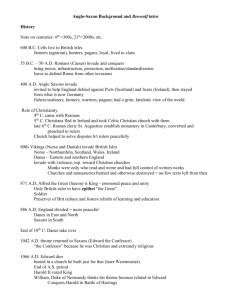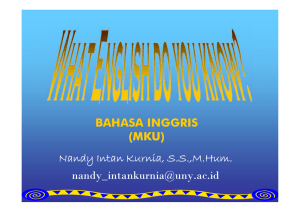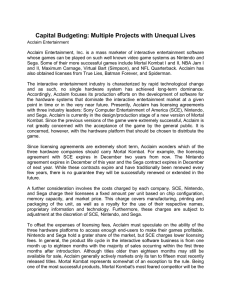450-1150 INTRODUCTION TO ENGLISH LITERATURE Nandy Intan Kurnia, S.S., M.Hum.
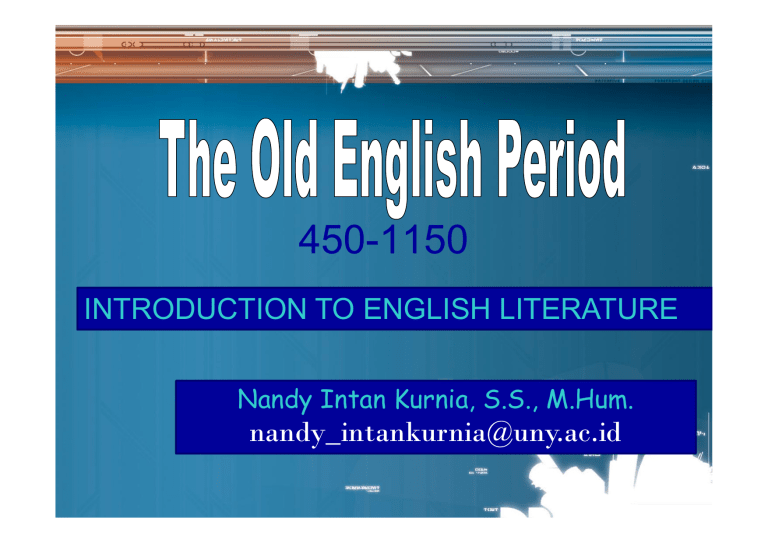
450-1150
INTRODUCTION TO ENGLISH LITERATURE
Nandy Intan Kurnia, S.S., M.Hum.
nandy_intankurnia@uny.ac.id
• Literature is as old as human language.
• It starts with words, and with speech the 1 st literature in any culture is oral
• In English, the 1 st signs of oral literature tend to have 3 kinds of subjects matter:
1. religion
2. war
3. the trials of daily life
•
The fragments that remain confirm that the motivations & inspirations for producing literature, & for listening to it (or later, reading it) are the same all through history
Literature can give:
- comfort
- consolation (as religious lit. often does)
- can illuminate our problems
- can affirm & reinforce social, political & ideological standpoints.
• Caedmon’s Hymn the 1 st fragment of lit.
(around 670) and it also considered as the
1 st Christian religious poem written in
English. It was preserved by the monks of
Whitby.
• Christian monks & nuns, in effect, the guardians of culture as they were virtually the only people who could read & write before the 14 th C.
• All the texts in the oral tradition in Anglo-
Saxon literature are poetry most are short
( Beowulf is the only long epic poem ) & full of images.
• The characteristic of Old English poetry:
- verse form a double line with a break in the middle
- the use of repeated sounds, poetic tropes
enable a writer to describe things indirectly & which require a reader imaginatively to construct their meaning.
• An Epic written in the 11 th C. Wessex dialect the beginning of a heroic tradition
(emphasizing strength & the territorial imperative).
• The characters & setting: Germanic
• Beowulf is a classic- mortal hero, who comes from afar. He has defeated the mortal enemy of the area ~ the monster Grendel ~ & has thus made the territory safe for its people.
Find the similarities
& differences between the two written text
Sources
Beckoff, Samuel. English Literature I. New
York: Monarch Press, 1971.
Carter, Ronald and John McRae. The
Routledge History of Literature in English:
Britain and Ireland. London: Routledge,
1997.
